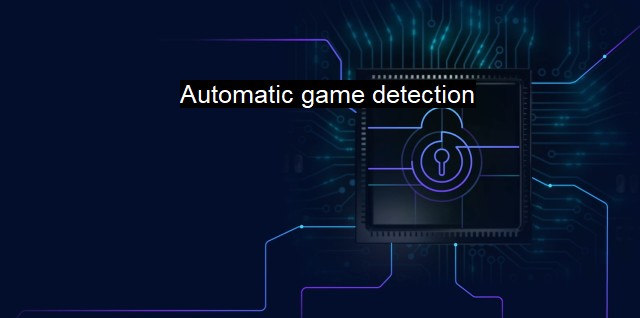What is Automatic game detection?
The essential guide to automatic game detection: maximizing gaming performance and security with antivirus software
Automatic game detection refers to a highly automated, intelligent feature incorporated into cybersecurity systems that allows the software to automatically recognize and interact with games and gaming software installed on a device. This capability comes in handy to prevent cyber threats while allowing the gamer to have uninterrupted gameplay. It is especially prevalent in systems like antivirus software, firewalls, and other security mechanisms that generally deal with harmful digital entities.Cybersecurity tools designed to include automatic game detection serve multiple objectives to facilitate smooth gaming experiences while ensuring optimal security levels. First, upon detecting a game running on the system, certain antivirus software switches to a relevant mode, typically called the 'game mode.' This mode essentially restricts automatic updates, schedules scans, and suppresses notifications, so the game does not get interrupted or the PC's resources do not get drained. As a result, the gamer can enjoy an optimized gaming experience without being disrupted by security system alerts.
Secondly automatic game detection aids strict firewall rules. It allows legitimate game traffic, updates and patches by recognizing trusted gaming applications while blocking suspicious processes prone to security threats. the system dynamically configures itself preventing potential cyberattacks associated with gaming.
Automatic game detection goes beyond just recognizing the game application. It can also assess an application's behavior, features, and its interaction with other programs and networked entities. Here, it utilizes sophisticated mechanisms, such as behavior-based detection or heuristic analysis that attends to the anomalies and patterns of the gaming software, considerably elevating its defensive capacity.
Specifically, behavior-based detection is a method where the software inspects the conduct of applications within the device. If an application, such as a game, acts bizarrely or shows symptoms of malicious activity, it raises a flag within the system, alerting the antivirus software. Conversely, heuristic analysis is where the security software identifies threats based on patterns or resemblances to known cyber threats. This method is particularly beneficial since it can detect threats not discovered or cataloged by cyber threat databases.
That said, creating an antivirus or cybersecurity regimen that incorporates automatic game detection feature is challenging. Ensuring a balance between providing robust protection against potentially harmful files or sites without altering the gaming experience requires an advanced understanding of both game software and cyber threats. Newer versions of games often update their codebase and sometimes act differently, which could lead a rudimentary system to mark them as threats falsely. Consequently, the performance of the game gets affected severely, jeopardizing the user experience.
Modern cybersecurity systems and antivirus software now have smarter ways of addressing this problem, like integrating digital machine learning. ML algorithms play a crucial role in reprogramming these security systems so they understand the gaming software's properties and respond to its changes. This adaptive feature mitigates against false positive disruptions and eases the processor load.
Automatic game detection brings a world of opportunities to the fold of modern cybersecurity equipment. By understanding a game's core behavior and adapting to its evolving facets, these advanced preventative systems offer a concrete multitiered security approach without causing interruptions during gameplay. for seamless immersion and assured connectivity, developers need to constantly adapt to the dynamic gaming environment and find more effective ways of mitigating the ever-growing threat of cybercrimes.

Automatic game detection FAQs
What is automatic game detection and how does it relate to cybersecurity?
Automatic game detection is a feature in antivirus software that automatically detects when a user launches a game and optimizes the computer's performance for gaming. While it's not directly related to cybersecurity, it can help prevent security issues like malware or viruses that can be disguised as game files.Can automatic game detection impact my computer's performance?
While automatic game detection can improve your computer's performance while gaming, it can also use up more system resources than necessary. It's important to make sure your antivirus software is properly configured to optimize your computer's performance without negatively impacting other programs.Is automatic game detection available in all antivirus software?
No, not all antivirus software comes with automatic game detection. Before you choose an antivirus software, make sure to review the features it offers and look for automatic game detection if you're an avid gamer.Is automatic game detection a security risk?
While automatic game detection itself isn't a security risk, it can create vulnerabilities if it's not configured properly. This is because if your antivirus software is prioritizing gaming performance, it might not be scanning all files for potential threats. It's important to make sure you're using updated antivirus software and running regular scans, even if you have automatic game detection enabled.| | A | | | B | | | C | | | D | | | E | | | F | | | G | | | H | | | I | | | J | | | K | | | L | | | M | |
| | N | | | O | | | P | | | Q | | | R | | | S | | | T | | | U | | | V | | | W | | | X | | | Y | | | Z | |
| | 1 | | | 2 | | | 3 | | | 4 | | | 7 | | | 8 | | |||||||